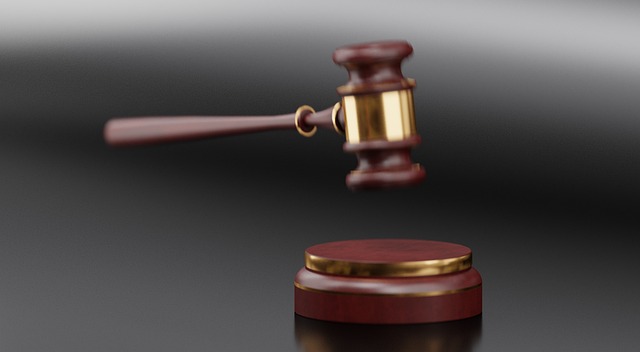In criminal law, achieving fairness hinges on mitigating jury biases during selection. Lawyers and judges meticulously question potential jurors to assess background and experiences, aiming for an impartial panel that bases decisions solely on evidence. Understanding common biases, such as racial, gender, and economic prejudices, is crucial for defense attorneys to present unbiased trials and ensure just outcomes. Strategies include diverse jury selection, unbiased evidence, compelling storytelling, expert witnesses, and impactful arguments, upholding the integrity of the criminal justice system. Post-trial evaluations help identify and rectify biases, emphasizing the importance of fairness in all defense scenarios.
“Understanding Jury Biases in Criminal Cases is paramount for ensuring fair justice. This comprehensive guide delves into the intricate dynamics of jury selection, exploring how it mitigates biases. We examine common sources of jury bias, from implicit prejudices to external influences, and their profound impact on criminal trials. Additionally, we analyze challenges in maintaining fairness and impartiality, providing strategies for lawyers to combat bias during proceedings. Post-trial evaluations are discussed as essential tools for measuring and rectifying biases.”
- The Role of Jury Selection in Mitigating Biases
- Common Sources of Jury Bias and Their Impact on Criminal Trials
- Fairness and Impartiality: Challenges in Ensuring Unbiased Juries
- Strategies for Lawyers to Address Jury Bias During Proceedings
- Post-Trial Evaluations: Measuring and Rectifying Jury Biases
The Role of Jury Selection in Mitigating Biases

In the realm of criminal law enforcement, understanding jury biases is paramount to ensuring fair and just outcomes. Jury selection plays a pivotal role in mitigating these biases, as it’s not merely about choosing individuals but also cultivating an impartial panel. This process involves scrutinizing potential jurors’ backgrounds, attitudes, and experiences to ensure they can set aside preconceived notions and render decisions solely based on the evidence presented during respective business.
A well-vetted jury is better equipped to navigate the complexities of criminal cases, avoiding the pitfalls of unconscious biases that could sway their judgments. Through careful questioning and challenges, attorneys and judges work together to assemble a diverse yet impartial group, thereby strengthening the integrity of jury trials in general criminal defense. This meticulous approach ensures that every defendant receives a fair trial, where decisions are based on facts rather than subjective views.
Common Sources of Jury Bias and Their Impact on Criminal Trials

Understanding Jury Biases in Criminal Cases is paramount for ensuring fair trials. Common sources of bias include racial, gender, and economic prejudices that can significantly impact a juror’s decision-making process. For instance, research shows that individuals with prior criminal records or those perceived as belonging to certain demographic groups may face unfair judgment. This bias can stem from unconscious stereotypes or societal biases deeply ingrained in the minds of jurors.
In the context of white collar and economic crimes, these biases pose unique challenges. When corporate or individual clients are on trial, perceptions about their profession or financial status can influence jury opinions. White collar defense strategies often need to address not only the legal aspects but also dispel any preconceived notions that could cloud the jurors’ ability to render an objective verdict. This is crucial in ensuring that justice is served without being obstructed by biases that can undermine the integrity of the criminal justice system.
Fairness and Impartiality: Challenges in Ensuring Unbiased Juries

Ensuring fairness and impartiality within criminal law enforcement is a complex challenge, particularly when it comes to jury selection. Understanding jury biases in criminal cases is crucial for achieving extraordinary results in court proceedings. Juries play a pivotal role in the justice system, as their decisions can significantly impact the lives of both the accused and the victims. However, human nature and societal influences introduce various biases that can affect a jury’s ability to render an unbiased verdict. These biases are often unconscious and may stem from cultural, racial, or socioeconomic factors, leading to potential unfairness in the legal process.
To mitigate these challenges, courts employ strategies such as juror screening and diversity initiatives. By carefully questioning potential jurors, lawyers can identify and address biases that might influence their decisions. Encouraging diverse representation within the jury pool helps ensure a broader range of perspectives, which can lead to more balanced and just outcomes. Moreover, fostering awareness about implicit biases among both legal professionals and the general public is essential. This includes educating folks from different walks of life—from philanthropic and political communities to everyday citizens—on how to recognize and overcome their own prejudices, thereby enhancing the integrity of the criminal justice system as a whole.
Strategies for Lawyers to Address Jury Bias During Proceedings

In criminal law enforcement proceedings, understanding jury biases is a strategic advantage for lawyers. To address these biases effectively, legal professionals must first be aware of common preconceptions and stereotypes that could influence jurors’ decisions. For instance, issues like racial or gender bias, as well as assumptions based on socio-economic status or cultural background, can significantly impact how a case is perceived. Lawyers should employ tactics such as thorough jury selection processes to ensure diverse panels, making sure to ask questions that reveal potential biases. During trial, presenting evidence in an unbiased manner and using compelling storytelling techniques can help counter stereotypes. For his clients, this means providing robust legal representation that challenges any unfair assumptions while presenting a clear, factual narrative.
Furthermore, utilizing expert witnesses and offering powerful closing arguments that appeal to the jury’s sense of justice can mitigate bias. The goal is not to sway jurors but to ensure they consider all aspects of the case objectively. An unprecedented track record of successful defenses in similar cases can also instill confidence in the jury’s impartiality, as it demonstrates a commitment to fairness and accuracy. By employing these strategies, lawyers play a crucial role in upholding the integrity of the criminal justice system, ensuring that their clients receive fair trials free from undue influence.
Post-Trial Evaluations: Measuring and Rectifying Jury Biases

Understanding Jury Biases in Criminal Cases is paramount for ensuring justice. Post-trial evaluations play a crucial role in measuring and rectifying potential biases that may have influenced the jury’s decision, especially in high-profile or controversial cases. By examining the verdict alongside evidence of preconceived notions, cultural influences, or external pressures, legal professionals can gain insights into how these factors might have impacted the outcome.
This process involves meticulous analysis of both explicit and implicit biases. Explicit biases are easily identifiable, such as racial or gender discrimination openly expressed during deliberations. Implicit biases, however, operate beneath conscious awareness and may manifest through unconscious stereotypes or assumptions. Recognizing and addressing these hidden biases is essential for achieving fairness in the criminal justice system across the country. This includes implementing diversifying measures within jury pools and providing comprehensive training to ensure impartiality in all general criminal defense scenarios.
Understanding jury biases is paramount in ensuring fairness within the criminal justice system. By recognizing common sources of bias, such as implicit associations and media influence, legal professionals can take proactive measures during jury selection and trial proceedings. Lawyers have a crucial role in challenging biased perspectives through strategic questioning and evidence presentation. Post-trial evaluations provide an opportunity to assess and rectify any lingering biases, ultimately aiming to mitigate their impact on criminal cases and uphold the principles of fairness and impartiality.






